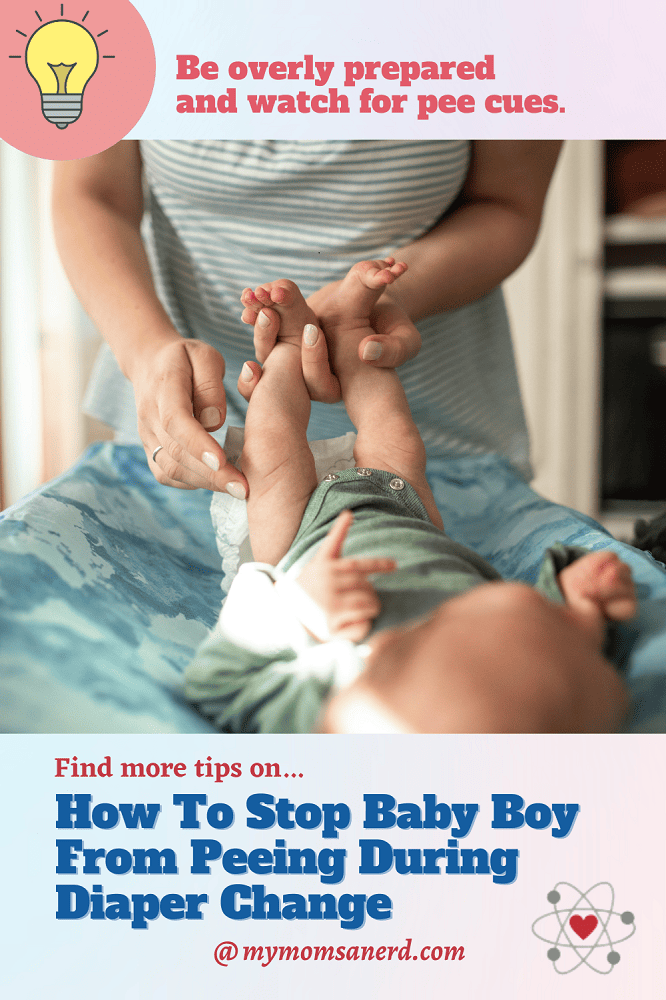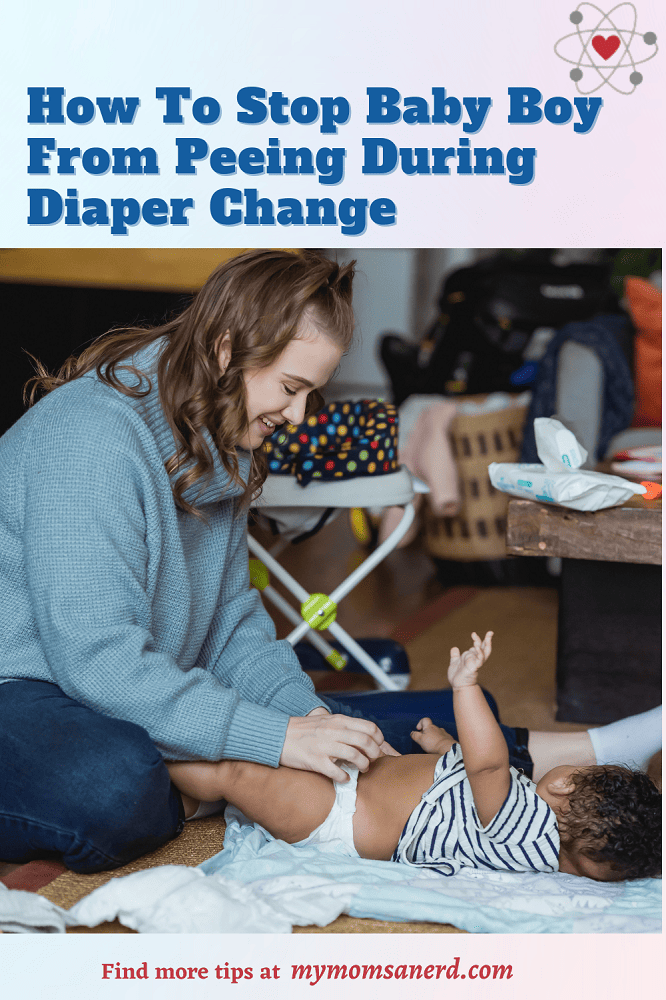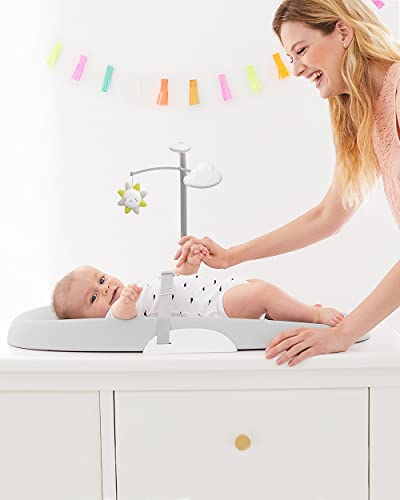How To Stop Baby Boy From Peeing During Diaper Change
Ask any parent of a baby boy, and they will tell you—the likelihood of getting splashed by pee during a diaper change is very high during the early months of parenthood.
With so many diaper changes and the frequency that babies go pee, it makes sense why parents of little boys are wondering if it’s even possible to avoid the urination situation entirely.
As seasoned parents of little boys, we’re here to tell you that it’s bound to happen (and we try to laugh about it!), but there are a few tricks and things you can try to avoid it becoming a consistent part of your day-to-day routine. Nobody wants to get doused in urine multiple times a day, and those who have walked this path before you have figured out a few workarounds.
Let’s get right into it!
Some of the links below are affiliate links. This means that, at zero cost to you, I will earn an affiliate commission if you click through the link and finalize a purchase.
Trigger the Natural Response
It can often help to trigger the natural response to peeing—a sudden change in temperature (the same reason kids often pee in the bathtub or the pool). You can do so by gently wiping your baby’s belly with a small wet washcloth or a wipe once you’ve laid them down on the changing pad; this may encourage them to pee before the diaper change occurs.
This tip only works if you’ve got wipes or a cold cloth on hand, so you’ll need to be near your changing station in order to try this suggestion. If you don’t have these items in a pinch, you can even try quickly opening and shutting the diaper to get a cool draft into the diaper. This trick may also cool your baby down enough to trigger the need to pee.
Watch for Pee Cues
Some babies give cues that they’re about to pee or that they need to, while others are on such a solid routine that their caretakers often know exactly when they pee. Perhaps your son always goes potty after he wakes up from a nap, after he nurses or drinks from a bottle, or you consistently notice his diaper is wet after tummy time.
Babies also express certain emotions when they need to go potty, like becoming fussy, emotional, or grumpy. Pay attention to these cues and patterns so you can change him when his bladder is empty to avoid any soaking.
Use a Pee Guard
Comically known as the pee pee teepee, this product effectively prevents urine from splashing onto Mom or Dad during a diaper change. Made from super-soft cotton flannel, the pee-pee teepee successfully shields any pee and covers your son without any irritation or disturbance when going potty.
Parents swear by the pee pee teepee to avoid getting soaked during a diaper change; it may be a novelty item, but it’s actually highly effective for its purpose, and you’ll surely swear by it as well. Once you get peed on, a product like this one makes total sense. It can’t hurt to have a set on hand at such an affordable price point.
If you don’t want to spend money on this type of product, you can easily have a small washcloth or towel nearby if you notice your baby starting to pee. Your reflexes will improve over time, and you’ll quickly become a ninja at dodging pee during changes.
Be Overly Prepared

Arguably, the best way to prevent any pee from getting on you is to go into the diaper change as prepared as possible. Undress your child and place the back of the diaper under his current diaper (this is most effective if you know there isn’t poop waiting for you, with the potential to make a mess and soil the new diaper) so it’s ready to slip on.
Quickly unfasten the tabs on either side of the diaper and gently slide the soiled diaper off your baby. As you scoot the dirty diaper off your baby, the clean diaper will be waiting underneath. Have it fluffed out and ready to go so you can quickly attach the tabs to the fresh diaper without leaving much time for any pee to escape.
You might also enjoy these tips on how to change a baby girl’s diaper!
Keep Him Warm
The room you’re changing him in may be cool, triggering him to go pee as soon as he enters the room or relaxes on the changing table. Try warming up the room if you can to see if that makes any difference in his peeing pattern.
If you’re changing a poopy diaper, try using warm wipes to wipe your baby’s bum. The shock of cold wipes often triggers peeing in babies, so a warm wipe may keep you both dry as you clean them up.
You might also find this post helpful: Tips on How to Prevent Diaper Blowouts
Buy Waterproof Everything
While this may seem drastic, a waterproof changing pad or liners can be a total game-changer for new parents. You’re exhausted and overwhelmed, and laundry is the last thing on your mind. Waterproof liners can be wiped clean, so you don’t have to wash the sheets on the changing pad every time your baby pees.
A waterproof changing pad like the SkipHop option makes it easy to clean up any liquid left behind with a wipe. It air-dries quickly and is ready to be used again in no time.
Have Fun With It
Sure, you don’t want to get peed on—so try having some fun with your son before you change his diaper. Tickle his belly or his neck, play peek-a-boo, or sing some songs… maybe distracting him and making him giggle will encourage him to urinate before the diaper even opens.
Related post: Tips on changing your baby’s diaper when he’s growing into a toddler!
Final Thoughts on Dodging Pee During Diaper Changes

While keeping your baby comfortable and happy is your top priority as a parent, nobody wants to walk around with a pee-stained shirt. Getting peed on may be a right of passage as a parent of a baby boy, but that doesn’t mean you shouldn’t take certain steps to avoid it from happening on a regular basis.
The tips and tricks in this post may work for you, or maybe they will inspire you to try something else to combat the never-ending pee challenge you’re about to embark on.
Little boys test their parents’ patience from the very beginning, and this is just one step along the way. Stay dry out there!





